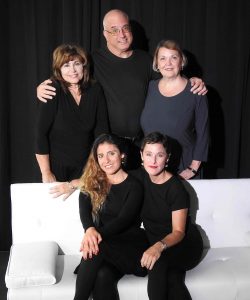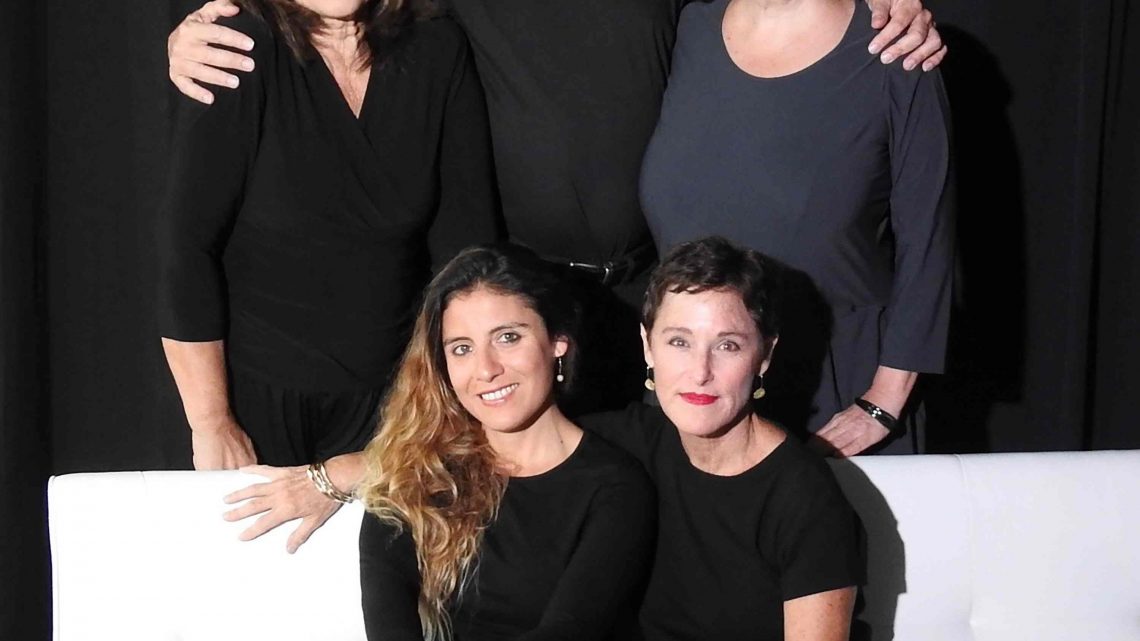Theater Review / Pulitzer Prize Finalist / “The Clean House”
Asks lots of quirky questions.
By Joanna Brady
Reputedly, the gifted young playwright, Sara Ruhl, was inspired to write The Clean House when she overheard a doctor announce that his cleaning lady from Brazil wouldn’t clean and that he ended up medicating her for the problem and having to clean his own house. That chance remark produced a play that is funny, quirky, sad, a bit metaphysical, and sheer fantasy.
The Clean House reminded me of a bag of trail mix, sweet, salty, and delicious, a treat with more than its share of nuts. The main nuts in the piece are husband Charles and wife Lane, both doctors. All Lane, the wife in the play, wants is a clean house. She’s got everything else: a husband who’s a successful surgeon and her own busy career as a doctor. Things seem fine. Except that the husband is up to other shenanigans, like finding a soul-mate, unbeknown to his wife. Keep life as uncomplicated as you want—something will still go wrong.
Meanwhile, the Brazilian nut in the mix is Lane’s live-in maid/cleaning lady, Mathilde, (played charmingly by Chilean-born Francesca Silva) who is depressed over the death of her parents (played, in flashback, by Camille Toler and Tim Dahms). They were fun-loving people — comedians, Matilde tells us. Fun and loving, but their gags of choice were risqué. She doesn’t want to clean, she wants to tell jokes and find the perfect joke that could literally kill you laughing. And she wants to tell it in Portuguese. Problem is, she’s still Lane’s live-in maid, and the work isn’t getting done despite her funny, likeable side. Enter Lane’s sister, a snoopy, neatnick OCD (played by Diane May) who is happy to take over the cleaning in secret complicity with Mathilde.
The play raises a lot of questions. Not many of us are so organized, so neat, tidy and clean that we can hold down a job, make dinner, look after ourselves and still manage to have a perfectly clean house. Yet, can we live in the intimacy of our own homes with hired help and still be able to give them orders? It’s always a conundrum when we have to ask ourselves: What’s really important in life? Are Mathilde’s whimsical Portuguese jokes of less importance than what Lane and her husband contribute to in their own daily lives?
In The Clean House, keeping a home clean becomes a metaphor for keeping our lives under control to produce a crispness or clarity to replace the miasma of messiness many of us seem to nurture. We can usually manage to mop our own floors until we get stressed from outside influences, or until we get into middle age and our lives get fuller and more complicated. The question always comes back to: ‘What really is important in a life well-lived? For what do we sacrifice a sterile, immaculate, well-ordered home?
Among the serious questions, there are some moments of hilarity peppered among serious banter in the play. The lip-synching of an operatic aria by Charles and Ana had everyone in the hall laughing.
Like trail mix, the Fringe has managed once again to give us a thought-provoking show to chew on. Director Rebecca Tomlinson leads a well-cast group of characters in this funny, quirky show that’s worth seeing.
Wende Shoer is great in the demanding role of Lane, and the comedic Tim Dahms is an excellent foil as Charles, her surgeon husband, who disappears to Alaska to find a cure for his mistress’s illness. Francesca Silva performs very well indeed as the jocular Brazilian maid, Matilde. Diane May is very entertaining as Virginia, Lane’s cushion-plumping sister, surreptitiously cleaning the house when no one is around. Camille Toler plays the dreamy, tragic, dying Ana with dignity and charm.
At the end of the day, Ruhl implies, we must ask ourselves—should life be lived as pristinely as possible? Or does love, happiness, sex, passion, and personal fulfillment require some degree of human messiness? It remains part of Matilde’s role to teach Lane and her needy sister Virginia about the virtue of being messy.
The Clean House runs through March 20 to 30 at St. Paul’s Church Hall, 410 Duval St., with entrance at the back. All show times at 7:00 pm. Tickets available from fringetheater or [email protected] Tel. 305-731-859l
(Joanna Brady is a local writer, author of the historical Key West novel, The Woman at the Light, published by St. Martin’s Press)
[livemarket market_name="KONK Life LiveMarket" limit=3 category=“” show_signup=0 show_more=0]


No Comment